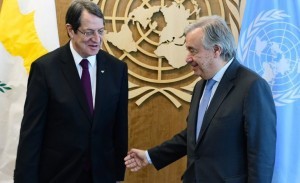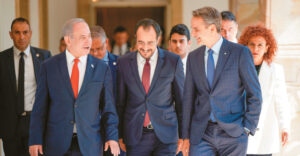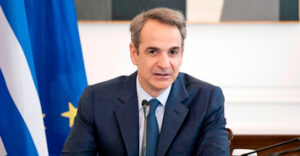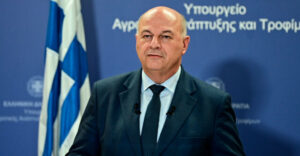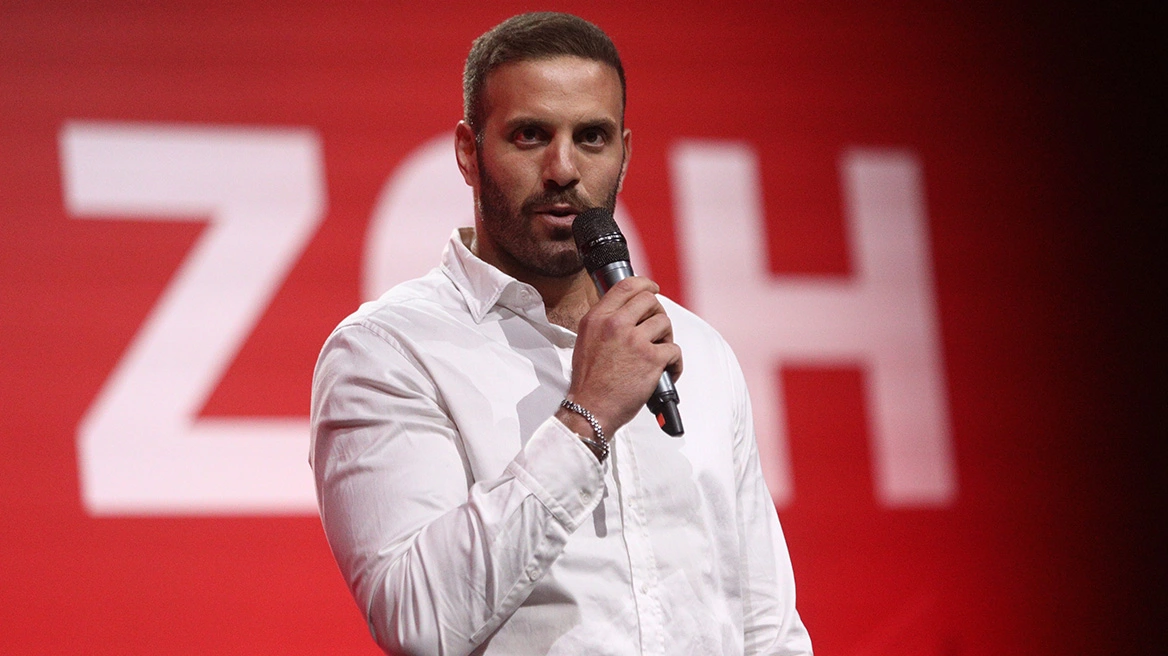The firm belief that a historic opportunity was missed in Crans-Montana, is expressed by UN Secretary General Antonio Guterres, in a report for his good offices mission on Cyprus. The Secretary General reaffirms the readiness of the United Nations to assist the sides when they should jointly decide to engage in a process with the necessary political will, in order to conclude the strategic agreement that was emerging in Crans-Montana. And he clarifies that in the future, agreement should be pursued at the strategic level on key outstanding issues which would form the basis for the comprehensive settlement and that, following the conclusion of a strategic agreement, details would need to be worked out at the technical level.
The 12page report is dated September 28 and an advanced copy was submitted to the members of the UN Security Council on Friday afternoon. The report covers the period from May 15, 2015 to August 11, 2017 and it is focused on the activities carried out by his good offices mission under the leadership of Special Adviser, Espen Barth Eide, regarding the leader-led negotiations between the Greek Cypriot and Turkish Cypriot sides.
In the introduction of the report, the Secretary General recalls that he Security Council, in its most recent resolution 2369 (2017), “noted the outcome of the Conference on Cyprus and encouraged the sides and all involved participants to sustain their commitment to a settlement under United Nations auspices. Echoing the Secretary-General’s firm belief that the responsibility for finding a solution lies first and foremost with the Cypriots themselves, the Security Council also expressed its full support for the Secretary-General in continuing to keep his good offices at the disposal of the parties.”
OBSERVATIONS
More specifically, in his observations at the last chapter of the report, Antonio Guterres records his assessment that “thanks to the tireless and determined efforts of the leaders and their teams and the unwavering support provided by the international community, the essence of a comprehensive settlement to the Cyprus problem is practically there. The parties had come close to reaching a strategic understanding on security and guarantees as well as on all other outstanding core elements of a comprehensive settlement. It is therefore my firm belief that a historic opportunity was missed in Crans-Montana.”
The Secretary General stresses the importance of the necessary political will in order for the parties to reach a settlement, implying that this element was absent in Crans Montana.
“Upon closing the Conference on Cyprus, I encouraged the sides to reflect on the way forward. Even if all the core enablers are in place, as they appeared to be in Crans-Montana in late June, I am convinced that the prospects of pushing this process finally ‘over the finishing line’ will remain elusive without the strongest of political will, courage and determination, mutual trust and a readiness on the part of all parties to take calculated risks in the last and most difficult mile of the negotiations. I remain equally convinced that, in the framework of a renewed process, in order for a comprehensive settlement to be successful in simultaneous referenda, the parties should lose no time in engaging the public and jointly building support for a unified future.
Based on the above, the Secretary General reiterates his call to the leaders, their respective communities and other interested parties, including the guarantor powers, to continue such reflection “to determine if and when conditions will mature again for a meaningful process in the near future.”
“I reaffirm the readiness of the United Nations to assist the sides should they jointly decide to engage in such a process with the necessary political will, in order to conclude the strategic agreement that was emerging in Crans-Montana. I furthermore encourage them to seek ways to preserve the body of work that had been built throughout the process in the form of convergences and understandings accumulated in the course of the past two years.”
In addition, he makes a solid suggestion on the methodology to be followed.
“It is my firm belief that for a process of such complexity and political sensitivity to be successful, a package approach on specific key issues such as the one which guided the discussions during the meetings in Crans-Montana would need to be followed. In the future, agreement should be pursued at the strategic level on key outstanding is-sues which would form the basis for the comprehensive settlement and that, following the conclusion of a strategic agreement, details would need to be worked out at the technical level. An early agreement at the strategic level would immediately provide each side with the needed reassurance that the overall settlement would contain those elements that are of key importance for each community and thus provide impetus for completion of the remaining technical details.”
STATUS OF PROCESS
The report offers a brief description of the negotiations which were organized into six chapters, – namely governance and power-sharing, economy, European Union matters, property, territory, and security and guarantees – since the talks between Christofias and Talat in 2008. It also clarifies that throughout this period of intense and results-oriented talks, the sides were guided by relevant Security Council resolutions as well as the Joint Declaration of 11 February 2014.
In the extensive chapter entitled “Status of the process”, he describes the progress accomplished in all six chapters of the negotiations, including the convergences and the remaining open issues. The chapter on the “status of process” also covers open issues like the writing of the Federal Constitution and the Federal Laws, the implementation of the acquis communautaire in a future Turkish Cypriot constituent state, ongoing work with international financial institutions on economic aspects of the settlement and planning for implementation, the unfinished work of the technical committees etc.
He regrets the fact that no additional crossing points opened and the sides have yet to implement the earlier agreements on interconnectivity of electricity grids and the interoperability of mobile telephones.
“Following the closure of the Conference on Cyprus on 7 July 2017, it remains unclear whether all the technical committees will continue to meet and whether the sides in-tend to implement already agreed confidence building measures or pursue new ones. A few technical committees have held meetings since, noting that it was now more important than ever to carry on some of the work that would benefit both communities. I believe that it is important to continue the support of the United Nations to the work of the technical committees, particularly during this period of political uncertainty. Because of the bi-communal nature of the technical committees, they have the potential to sustain the gains achieved so far in the Cyprus peace talks, and continue to contribute to the development of further confidence-building measures and peace-building efforts.”
He also offers details on the meetings in Mont Pelerin and the Conference on Cyprus he convened in Geneva, on January 12, 2017.
On the meetings in Mont Pelerin, Guterres says in his report that during the first round, “the leaders secured a significant breakthrough, agreeing on a range for the land percentages of the constituent states that would result from the territorial adjustment. During the second round, the sides failed to achieve further progress on territory and therefore to present their respective maps, returning to the island with a clear perception that the process risked facing a serious stalemate.”
He mentions the December 1st meeting between President Anastasiades and T/c leaders Mustafa Akinci and their decision to convene the negotiations on security and guarantees, and he characterizes as “another historic first in this process”, the opening of the international phase of the negotiations, for bringing the parties one step closer to a comprehensive settlement.
“The parameters for solving security and guarantees were set in Geneva. The statement of the Conference on Cyprus of 12 January underscored the need for mutually acceptable solutions that address the concerns of both communities, with the overarching principle that the security of one community cannot come at the expense of the security of the other community. It also established that the solutions envisaged needed to address both communities’ traditional security fears, while developing a security vision for the future. These parameters guided the work of the Group of Deputies of the Conference, which met one week later in Mont Pèlerin, Switzerland, on 18-19 January, to develop questions and instruments related to security and guarantees.”
He also reports the “setback” in the process, after the decision of the Cyprus Parliament on the “Enosis Referendum.”
“ The controversy between the sides over the decision by the Parliament of the Republic of Cyprus to introduce an annual commemoration in public schools of the 1950 referendum on ‘Enosis’ (Union) with Greece resulted in a two-month hiatus in the talks from 16 February to 11 April 2017. This meant that the sides lost crucial time in the negotiations when they had gained significant momentum. It also had a negative impact on the trust between the two leaders and their respective communities.”
Guterres also notes his meeting with both leaders at the UN Headquarters on June 4, 2017 and their agreement to resume the Conference.
“They recognized the vital importance of security and guarantees to the two communities and the importance of progress in this chapter for reaching an overall agreement. At the same time, they committed to continue in parallel the bi-communal negotiations on all other outstanding issues, beginning with territory, property and governance and power-sharing. Furthermore, they reaffirmed that all issues would be negotiated interdependently and that nothing would be agreed until everything was agreed.”
CRANS MONTANA
The Secretary General offers an extensive presentation of the events in Crans Montana, including a basic description of his proposals, but he avoids to mention details of what happened during the final dinner of the Conference and in the private meetings with the parties involved.
He states that despite differences in their opening positions and public rhetoric, he could see from his in-depth engagement with the three guarantors in Crans-Montana that they had all come to Switzerland committed to seeking mutually acceptable solutions. But despite a positive mood and constructive statements made during the opening day of the Conference, real progress quickly became hampered by the parties at one ‘table’ being reluctant to make compromises unless demonstrated progress had been made at the other ‘table’, and vice versa.
“In an effort to resolve this dilemma, on 30 June, I presented the parties with a framework for simultaneously resolving six major out-standing issues at both ‘tables’ as elements of a final package that, in my view, would lead to a comprehensive settlement. These were related to territory, political equality, property, equivalent treatment, and security and guarantees”, the SG says.
Following a short description of the six elements of his proposal, Guterres notes that “by the end of the Conference, the sides had reached practically full agreement on the federal executive and effective participation. On equivalent treatment, although some differences remained, they were limited in scope principally to the issue of free movement of persons, which officials of the European Commission present in the negotiations qualified as limited and possible to accommodate through practical solutions.”
He also records what was agreed on property and territorial issues and his proposals of Security and Guarantees.
“I proposed that the parties identify solutions taking into account that the current system of guarantees, and in particular article four of the Treaty of Guarantee containing the unilateral right of intervention, was “unsustainable”. I also suggested that a new system of security was needed for Cyprus, together with a credible framework for monitoring implementation of the agreement in which the current guarantors would play a role. On the question of the presence of Greek and Turkish troops in Cyprus, it was agreed that any outstanding issues regarding troops would best be addressed at the highest political level involving the Prime Ministers of the three guarantor powers.”
On July 6 the Secretary General returns to Crans Montana in order to help the parties to reach a strategic understanding on the six issues and he notes that it was only upon his return that some of the most essential elements were considered.
“During confidential bilateral meetings, key positions and indications of possible openings were put forward by relevant parties, particularly on the issues related to security and guarantees. It was underscored, however, repeatedly by several of the parties that these were to be taken as part of the overall package which I had presented. During a dinner for the heads of delegation, I shared my assessment that there was a broad understanding of the parameters of the potential strategic agreement. I also presented the parties with a draft of an implementation monitoring framework in the form of a non-paper for their consideration.”
His short description of the termination of the dinner is as follows:
“Regrettably, during the dinner, while the six elements of the package were largely available, the parties were unable to finalize a package and bridge remaining differences. While the parties were moving closer on substance, they remained far apart with respect to the necessary trust and determination to seek common ground through mutual accommodation, ultimately preventing them from reaching the broad outlines of a strategic understanding across the negotiating chapters which could have paved the way for the final settlement deal. Therefore, no agreement could be reached to convene the Prime Ministers. As a result, the parties concurred with my conclusion that the Conference would likely not achieve a result and should be closed.”
On the progress accomplished by the parties during the Conference, on the six elements of his proposal, Guterres says:
“By the time the Conference closed, the sides had essentially solved the key issue of effective participation. While some differences remained on the equivalent treatment of Turkish nationals with regard to the issue of free movement of persons, this was now down to a question of certain details rather than principles. An incipient agreement was also emerging on territorial adjustment. With regard to property, the sides had agreed in principle on two separate property regimes, while again some details remained. Finally, the participants had significantly advanced in developing a security concept– assuming that agreement was reached on all domestic aspects of the settlement to the satisfaction of both communities.”
Regrettably, the sides have yet to implement the earlier agreements on interconnectivity of electricity grids and the interoperability of mobile telephones.
Source: greeknewsonline.com
Ask me anything
Explore related questions
